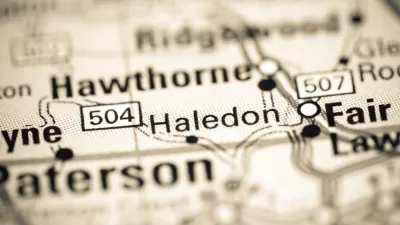Most cities don't get the chance to start from scratch. But Quincy, Mass. plans to raze most of its 50-acre center and build it anew with the aid of a private developer's upfront funding - a plan that may rewrite the rules of urban development.
If all goes as planned, Quincy, MA will soon begin to bulldoze its city center, and a private firm (Street-Works Development of White Plains) will begin a 10-year process of building it back up.
In this unusual public-private partnership, Street-Works will pay for all the public improvements upfront (including $289 million in new infrastructure like sewers, utilities and roadways), start building ("$1.3 billion of new private housing, retail, offices, entertainment, hotels and parking" is planned), and then lease out the space. Eventually the City will take over the infrastructure bill by selling bonds and begin to earn some income from the property.
"We couldn't afford to do this on our own, this quickly," said Mayor Thomas P. Koch. This funding mechanism may offer an opportunity for other cities that want to revitalize in a down economy.
"In the 21st century, innovative mayors will have to redefine development rules, and it's commendable that this mayor is willing to take the risk," said Thomas Murphy, a senior fellow at the Urban Land Institute and a former mayor of Pittsburgh. "If Quincy succeeds, it's a game changer."
It's not without risk; a similar project in nearby Boston resulted in an empty block when the developer pulled out. But officials and the developer are convinced that opportunity abounds in Quincy - a waterfront city just a few subway stops from downtown Boston and located along a major interstate - where jobs and the economy are expected to rebound quickly.
FULL STORY: Rebuilding Downtown From the Ground Up

Alabama: Trump Terminates Settlements for Black Communities Harmed By Raw Sewage
Trump deemed the landmark civil rights agreement “illegal DEI and environmental justice policy.”

Planetizen Federal Action Tracker
A weekly monitor of how Trump’s orders and actions are impacting planners and planning in America.

Why Should We Subsidize Public Transportation?
Many public transit agencies face financial stress due to rising costs, declining fare revenue, and declining subsidies. Transit advocates must provide a strong business case for increasing public transit funding.

Understanding Road Diets
An explainer from Momentum highlights the advantages of reducing vehicle lanes in favor of more bike, transit, and pedestrian infrastructure.

New California Law Regulates Warehouse Pollution
A new law tightens building and emissions regulations for large distribution warehouses to mitigate air pollution and traffic in surrounding communities.

Phoenix Announces Opening Date for Light Rail Extension
The South Central extension will connect South Phoenix to downtown and other major hubs starting on June 7.
Urban Design for Planners 1: Software Tools
This six-course series explores essential urban design concepts using open source software and equips planners with the tools they need to participate fully in the urban design process.
Planning for Universal Design
Learn the tools for implementing Universal Design in planning regulations.
Caltrans
Smith Gee Studio
Institute for Housing and Urban Development Studies (IHS)
City of Grandview
Harvard GSD Executive Education
Toledo-Lucas County Plan Commissions
Salt Lake City
NYU Wagner Graduate School of Public Service





























